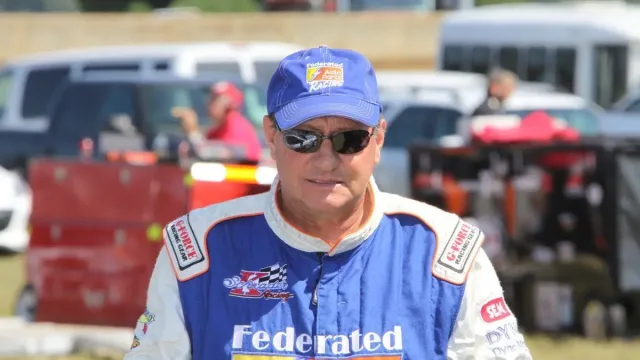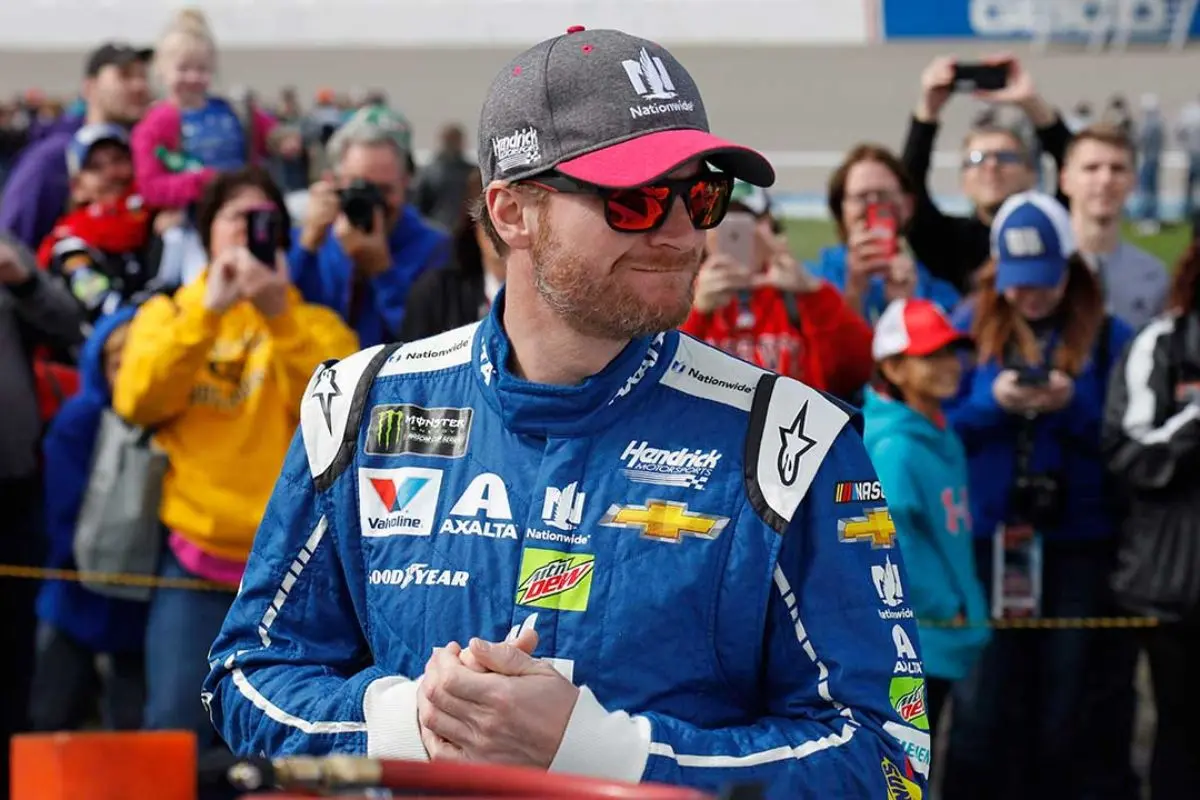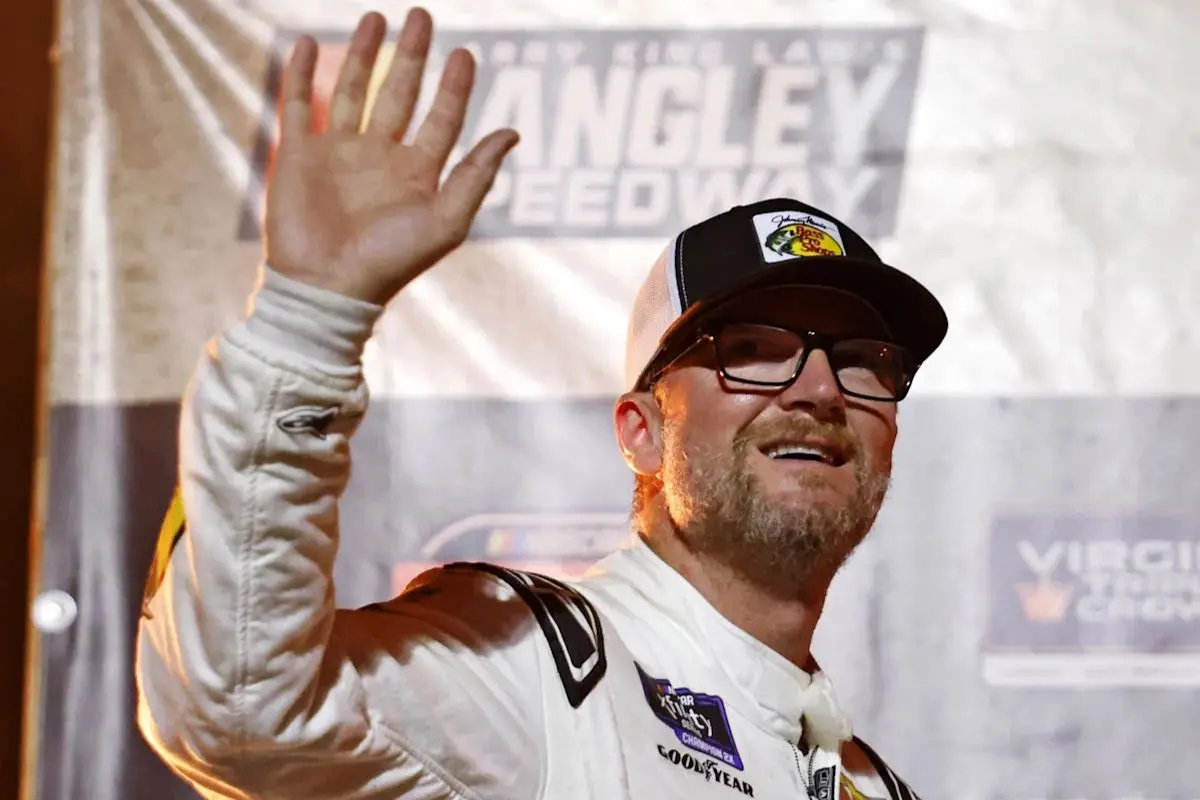Ken Schrader reflects on dodging a 10K Dollars fine in a story that brings both laughter and curiosity to NASCAR fans. After a heated run-in with Morgan Shepherd at Darlington, Ken Schrader managed to talk his way out of a hefty fine. But what made NASCAR decide not to pursue the penalty? Was it Ken Schrader’s charm, or something else at play? Dive into this surprising tale of rivalry, humor, and NASCAR’s unique way of handling tough situations.
Key Highlights
- Ken Schrader humorously accepted the $10,000 fine after his altercation with Morgan Shepherd, framing it as an accidental incident to NASCAR officials.
- Despite receiving the fine, Schrader showed indifference by ignoring the bill, reflecting his nonchalant attitude towards penalties.
- The rivalry and humor in NASCAR culture allowed Schrader to maintain friendships, even after confrontations, exemplified by his playful vodka request to Dale Earnhardt Jr.
- Schrader’s lighthearted approach to the fine demonstrates the balance of competition and camaraderie among NASCAR drivers.
- The incident contributes to the narrative of Schrader’s character, showcasing his ability to navigate the pressures of racing with humor and resilience.
Ken Schrader’s Run-In with Morgan Shepherd at Darlington
Frequently, the world of NASCAR is marked by intense rivalries and heated confrontations, and Ken Schrader‘s memorable run-in with Morgan Shepherd at Darlington Raceway exemplifies this dynamic. During a crucial race in the Xfinity Series, Schrader found himself embroiled in conflict with Shepherd, who was competing in the No. 89 Chevy for Shepherd Racing Ventures. The incident unfolded after 80 laps, when Schrader, frustrated and simmering with emotion, parked his car on pit road contemplating retaliation against his rival.
On that sweltering South Carolina day, team owner Rick Hendrick approached Schrader, offering him water to cool off. However, Schrader’s response was telling of his mindset: “No, I want to stay in here and stay hot and mad.” This refusal demonstrates the psychological intensity often seen in racing—where emotions can fuel performance or lead to rash decisions.
When Schrader ultimately returned to the track, he confronted Shepherd, further escalating the situation. Following the race, he was instructed to remain in the trailer, a directive he chose to disregard by opting to leave instead.
“I got him (Shepherd) the second lap back out, andhthey told me (to stay) in the trailer after the race but I didn’t stay. I go home.” – Ken Schrader
This incident not only emphasizes Schrader’s fiery competitive spirit but also highlights the complex interplay between personal rivalry and professional conduct within NASCAR. Schrader’s refusal to succumb to cooling-off measures illustrates the raw emotions that often drive drivers to extremes, making such confrontations a staple of the sport’s narrative.
The $10,000 Fine and Aftermath
How does one maneuver the repercussions of a heated rivalry in the high-stakes world of NASCAR? For Ken Schrader, the aftermath of a $10,000 fine exemplified both the absurdities and the complexities of the sport. It raised questions not only about accountability but also about the unwritten rules among competitors.
Key aspects of Schrader’s experience demonstrate this dynamic:
- Communication with Officials: After the incident with Morgan Shepherd, Schrader communicated with NASCAR officials, attempting to clarify the situation as an accident rather than an intentional act of aggression.
- The Fine’s Implications: Despite his explanation, the fine was levied, demonstrating NASCAR’s commitment to maintaining order, even if it sometimes felt arbitrary. Schrader’s humorous reflection on the fine—“they’re both dead now so it’s okay“—speaks to an acceptance of the situation, albeit with a wry twist.
- Ignoring the Fine: Perhaps the most telling aspect of the aftermath was Schrader’s decision to disregard the notice entirely. When he received a bill for $1,000, he simply discarded it, indicating a level of nonchalance toward NASCAR’s enforcement measures.
“I got a $10k fine and I probably shouldn’t say it but they’re both dead now so it’s okay,” Schrader said as Wallace broke into a fit of laughter. “Beaty and Richter… they said, okay we’ll give you $3k a week off if you don’t try to kill him. So we never had any run-ins for three weeks. They sent me a bill for $1k and I threw it away and never heard anymore about it.” – Ken Schrader
From ep 1 of "Herm & Schrader"@KenSchrader tells @Kenny_Wallace the story of getting fined by NASCAR … and not paying it!
Full show on @DirtyMoMedia podcast & Kenny Wallace YouTube! pic.twitter.com/2ageu91ADr
— The Kenny Wallace Show (@KWallaceShow) November 17, 2024
This episode emphasizes a unique aspect of NASCAR culture: the balance between rivalry, humor, and the often ambiguous nature of penalties. Schrader’s experience is a reminder that maneuvering conflict within the sport is as much about personality and relationships as it is about rules and consequences.
Ken Schrader’s Hilarious Call to Dale Earnhardt Jr. for Vodka
In NASCAR, where intense rivalries and the pursuit of victory often dominate the narrative, humor can serve as a revitalizing counterbalance. Ken Schrader’s amusing anecdote about calling Dale Earnhardt Jr. for vodka exemplifies how friendship and lightheartedness permeate the racing community. In a moment of unexpected need while in Virginia with his wife, Ann, Schrader recognized the urgency of a vodka shortage and decided to reach out to Earnhardt, who is not only a racing icon but also a co-owner of High Rock Vodka.
“We called Dale Jr. a couple years ago, We were doing play days out in Virginia and called him up and said we got a problem.”
“Well, we’re up here in Virginia, Ann’s out of vodka.” – Ken Schrader
This humorous exchange highlights the unique relationships among drivers, often transcending the competitive nature of the sport. Schrader’s playful tone was evident when he explained, “Now we don’t need it tonight, but we’re gonna need it pretty quick.” This call demonstrates not just the friendship but also the informal, often humorous nature of their interactions.
Such light-hearted moments are crucial, as they remind fans and participants similarly that behind the helmets and high speeds, there exists a vibrant community where humor is as cherished as competition. Schrader’s call highlights the human side of racing, blending friendship with the unexpected.
Dale Earnhardt Jr.’s Reaction to the Vodka Request
The unexpected nature of Ken Schrader’s call caught Dale Earnhardt Jr. off guard, leading to a moment of disbelief that highlighted the fellowship within the NASCAR community. Initially, Earnhardt assumed Schrader was facing a serious issue, perhaps necessitating financial assistance or even the urgent need for a plane. Instead, he was met with a humorous request for vodka, an epiphany that transformed potential distress into laughter.
This incident encapsulated several key elements that define the friendship among racing legends:
- Unexpected Humor: The incident serves as a reminder that even in high-pressure environments, humor can bridge gaps and foster relationships.
- Lighthearted Rivalry: Despite their competitive history, Schrader and Earnhardt’s ability to share a joke emphasizes the lighter side of their fierce on-track rivalry.
- Community Bonding: The exchange not only entertained but also reinforced the bonds that unite NASCAR drivers, showcasing that they are more than just competitors; they are friends.
Kenny Wallace’s uncontrollable laughter during the call further highlighted the amusing nature of the situation, illustrating how such moments can create lasting memories within the racing fraternity.

Earnhardt’s reaction was one of genuine surprise followed by amusement, reflecting the shared experiences and lighthearted interactions that often go unnoticed in the intense world of NASCAR.
News in Brief: Ken Schrader Reflects on Dodging a 10K Dollar Fine
In recounting the incident with Morgan Shepherd at Darlington, Schrader’s experience emphasizes the unpredictable nature of NASCAR’s regulatory environment. The avoidance of a $10,000 fine exemplifies the complexities of enforcement and discretion within the sport. Furthermore, the humorous exchange with Dale Earnhardt Jr. regarding vodka highlights the fellowship and levity that often pervades the racing community, even amidst controversies. Ultimately, these narratives reflect the intricate interplay between personal relationships and competitive dynamics in NASCAR.
ALSO READ: Ken Schrader’s Epic Vodka Call to Dale Jr. Leads to the Most Unexpected NASCAR Story



